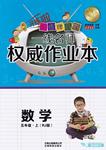题目内容
阅读下面的短文,然后用英语回答问题,并将答案写在答题卡标有题号的横线上。

Last spring I was walking in a park. In front of me there was a mum and her 3-year-old daughter. The little girl was holding on to a string, which had a balloon at the other end.
All of a sudden, a sharp gust (一阵风) of wind took the balloon from the little girl. I thought she would scream and cry.
But, no! As the little girl turned to watch her balloon rise to the sky, she cheerfully shouted out, “Wow!”
I didn’t realize it at that moment. But that little girl taught me something.
Later that day, I received a phone call from a person with news of a sudden problem. I almost replied with “Oh no, what should we do?” But remembering that little girl, I found myself saying: “Wow, that is interesting! How can I help you?”
One thing is for sure — life is always going to put us off balance with things we don’t expect. But how we act to them is our choice. We can choose to be discouraged or interested.
No matter what the situation is, a “Wow!” will always beat “Oh, no.”
So next time you meet one of life’s unexpected gusts, remember that little girl and make it a “Wow!” experience. It always works.
1.Where was the little girl?
_____________________________________________________________________
2.How did the little girl feel when her balloon was blown away?
_____________________________________________________________________
3.Will you have an active mood when unexpected trouble comes up? Why or why not?
______________________________________________________________________
 一线名师权威作业本系列答案
一线名师权威作业本系列答案
